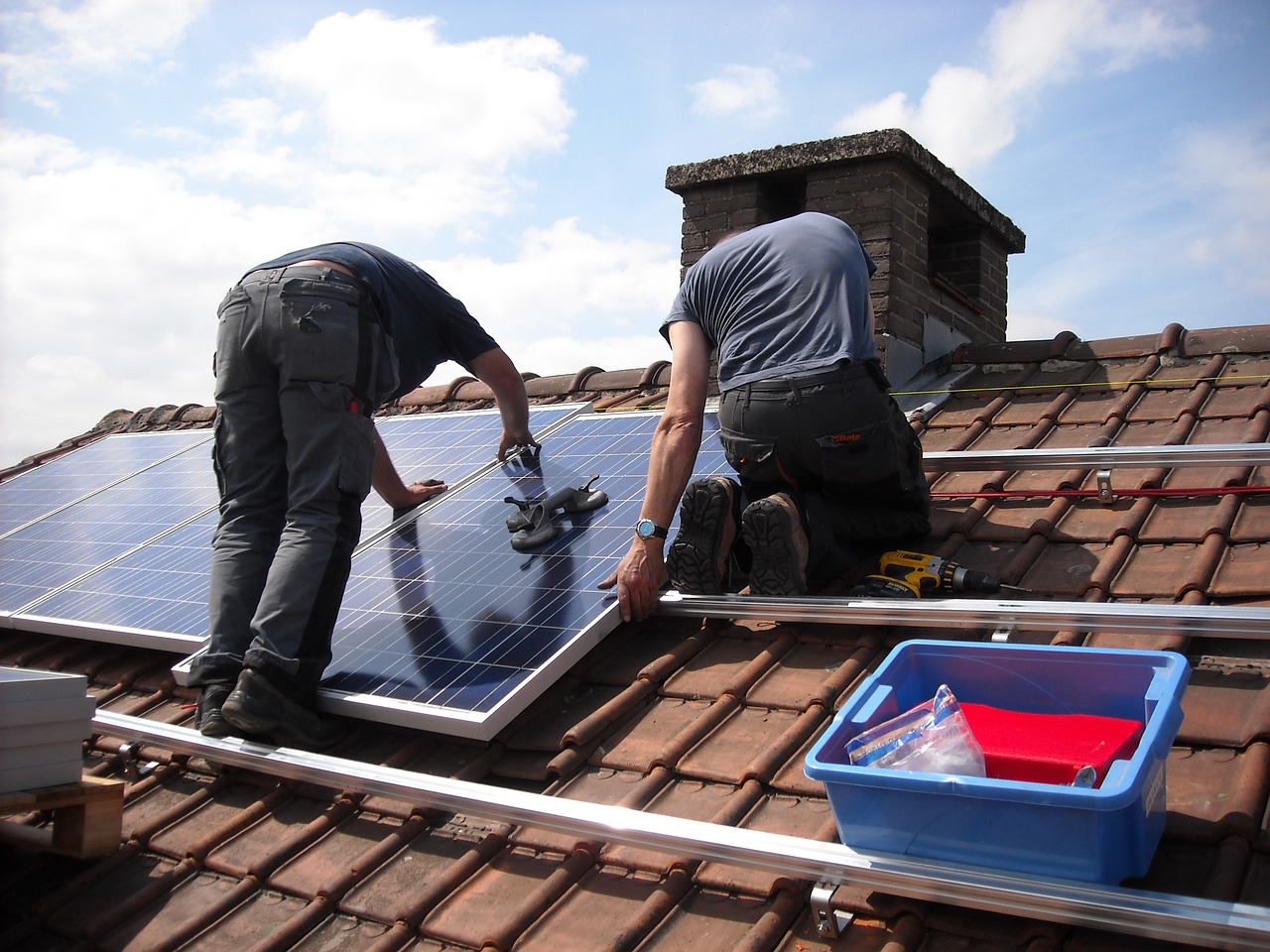We help you get the best panels and battery storage solutions for your energy needs. We guide you to get maximal benefits from local, state and federal incentives and great financing options.
Just like the heart stores life-giving energy to pump blood throughout our bodies, solar batteries store the sun’s generous energy to power our homes. We’re diving deep into the world of these energy-storing marvels today, exploring their many benefits and crucial considerations for choosing one. These powerhouses are more than just boxes; they’re symbols of a sustainable future, guardians against power outages, and key players in reducing reliance on conventional grid electricity. They come in various types—lead-acid, lithium-ion, nickel-cadmium, flow batteries—all with different costs and efficiencies. Picking the right one can be tricky but don’t worry, we’ve got you covered! Not only do these solar warriors offer potential long-term savings on electric bills but also pave way towards complete energy independence. Are you ready to join us on this enlightening journey?
Get a Savings Estimate

Imagine harnessing the power of the sun during the day, storing it in a solar battery, and then using that energy to light up your home when night falls or even during a power outage. That’s precisely what solar batteries do; they are an integral part of any robust solar energy system. By storing surplus energy generated by your solar panels, these battery systems allow you to maximize your use of self-generated solar power. The type of battery you choose can make a significant difference in how effectively you utilize this clean energy source. Understanding each battery type’s unique features is crucial for building an efficient and reliable system. Indeed, having a well-designed battery storage system significantly enhances your overall experience with renewable energy sources like solar power.
Get a Savings EstimateYou’ll be amazed to know that, according to the U.S. Energy Information Administration, homes with battery storage systems can reduce their reliance on the grid by a whopping 80%. This is just one of the many benefits of solar battery storage. Not only do these energy storage solutions allow you to harness the power of the sun during daylight hours, but they also store your solar energy for use at night or during cloudy days. Such home battery backup systems are vital in times of power outages. The battery capacity is important as it determines how much energy can be stored. Lithium solar batteries are among the best solar batteries available due to their high efficiency and long lifespan.
Get a Savings Estimate
When it’s time to choose a storage system for your renewable energy, there are some key factors you should take into account. First, consider the type of battery technology that suits your needs. The best battery will depend on how much power you want the solar battery for your home to store and release. Battery capacity is vital in this respect as it determines how much excess solar energy your battery can store.
The power output of the battery also matters. It should be powerful enough to run all necessary appliances during an outage. Additionally, consider different battery brands and their reputations, warranties, and customer support. Lastly, don’t forget about the cost of the battery installation – opting for a reputable installer ensures safe and efficient installation of your batteries storage system.
Harnessing the sun’s power for your energy needs, you’re not just reducing your electricity bills – you’re gaining freedom from grid dependence. Batteries offer a way to achieve this independence, providing a reliable and consistent supply of power, even during grid outages.
With an off-grid solar installation, excess energy produced by your solar panels is stored in the home battery rather than being fed back into the grid. This stored energy can then be used to power your home at night or during periods of low sunlight.
In essence, integrating a solar battery into your home energy system provides backup power and maximizes the benefits of your solar system. So by investing in this technology, you’re taking control over your own energy production while also contributing to a more sustainable future.

Imagine the thrill of watching your electric bill plummet, month after month. That’s what we can achieve by incorporating solar power batteries into our home solar setup. By storing the energy generated by solar panels, these batteries can help us harness the sun’s power even when it’s not shining.
Power storage is a key benefit that boosts the efficiency of any solar panel system and translates to significant electric bill savings over time. When you run your solar installation with a battery backup, you’re less reliant on grid electricity. This means more money stays in your pocket! Installing batteries truly pushes us towards energy independence while saving money - a win-win situation if ever there was one!
A: Solar batteries are specifically designed to store energy generated from solar panels. They store this energy so that it can be used during periods of low sunlight or at night when the solar panels are not producing electricity.
A: The purpose of solar batteries is to provide a reliable and efficient battery system for storing solar power. They ensure that the energy generated from solar panels is not wasted and can be used whenever needed, even when the sun is not shining.
A: There are various types of solar batteries available in the market, but the most common types are lithium-ion batteries, lead-acid batteries (including flooded lead-acid and AGM batteries), and lithium iron phosphate batteries. Each type has its own advantages and disadvantages.
A: Solar batteries work by capturing and storing the excess electricity generated by solar panels. During the daytime, when the solar panels produce more electricity than needed, the extra energy is stored in the battery bank. Then, during periods of low sunlight or at night, the stored energy is used to power your home or other electrical devices.
A: A deep cycle battery is a type of battery that is designed to be discharged and recharged repeatedly without losing its capacity. It is the ideal type of battery for solar power systems as it can handle the frequent charging and discharging cycles required.
A: Lithium solar batteries have several advantages over other types of batteries. They have a longer cycle life, meaning they can be charged and discharged more times before their capacity starts to degrade. They are also more energy-efficient, have a higher power density, and are generally lighter and more compact compared to lead-acid batteries.
A: Yes, solar batteries are commonly used in off-grid solar systems. In off-grid systems, solar panels generate electricity which is then stored in the batteries. This stored energy is used to power appliances and devices when the solar panels are not generating electricity.
A: When selecting a solar battery, you should consider factors such as battery capacity, cycle life, depth of discharge, and compatibility with your solar system. It is recommended to consult with a solar professional to determine the best solar battery for your specific requirements.
A: The lifespan of solar batteries can vary depending on the type and quality of the battery, as well as how it is used and maintained. On average, a well-maintained solar battery can last between 5 to 15 years.
A: Yes, solar batteries can potentially help you qualify for the federal solar tax credit. The federal solar tax credit allows homeowners to claim a percentage of the cost of their solar battery system as a tax credit. However, it is recommended to consult with a tax professional or visit the official government website to determine the eligibility criteria and requirements for the tax credit.

Fill out the form or give us a call and get a free quote based on your local incentives.
Book a Consultation